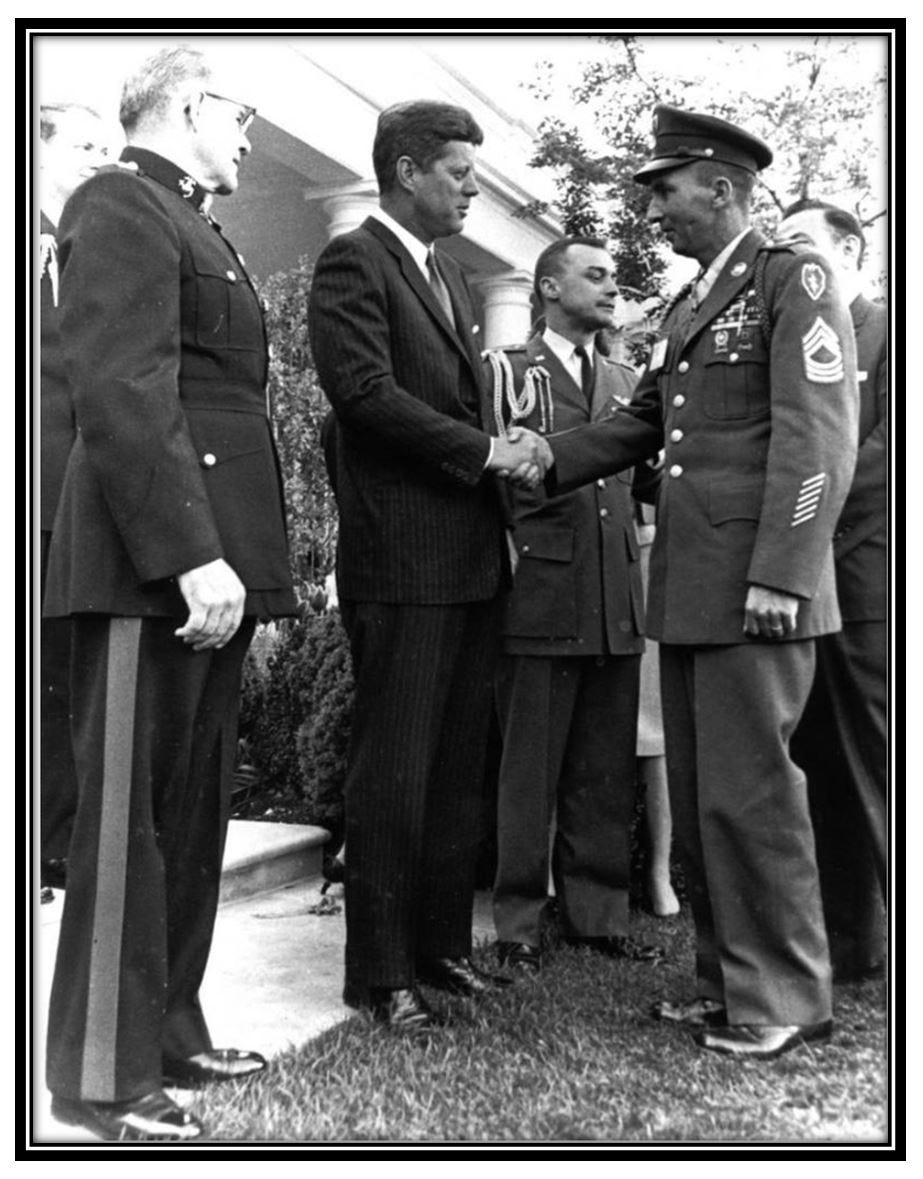TDIH: Wilburn K. Ross's One-Man Stand
He survived a virtual one-man battle against German forces for an unbelievable 5 hours.
On this day in 1945, a hero receives the Medal of Honor. Wilburn K. Ross had engaged in a virtual one-man battle against German forces for an unbelievable 5 hours. Amazingly, then-Private Ross lived to receive his Medal in person.
Ross had come a long way from the days when he’d ignored his first draft notice. He’d been a Kentucky native living in Virginia, and he’d felt safe ignoring the notice mailed from Kentucky. He joined the Army only when a second message arrived.
Who knew that it would be the start of a long and venerable Army career?
Ross was deployed to Italy and to Morocco. He was wounded multiple times by shrapnel, even taking hits to his head. On one occasion, he’d been lost behind enemy lines in freezing temps and suffered from half-frozen feet. What a blessing that he’d survived those experiences to be with his company on October 30, 1944.
Our soldiers were then in an intense fight with elite German troops near Saint-Jacques, France. Fifty-five of eighty-eight Americans had already been killed or wounded. The rest were cornered.

Ross swung into action. He grabbed his machine gun and set up a position ten yards in front of his company. Over the course of the next five hours, he would bear the brunt of nine separate German attacks. “His position seemed to be on fire,” one witness would later say, “because of the explosions all around him.”
Several times, Germans would try to creep up on his position and take him out with grenades, but to no avail.
After the eighth assault, Ross was out of ammunition, and he was ordered to leave. He refused to go. “He merely shook his head,” Lt. William T. Wardell recounted. The German troops launched a furious assault, trying to take advantage of the situation. Ross’s position was being protected by the eight remaining riflemen from his company. Their only defense was bayonets! Fortunately, someone brought Ross more ammunition just when things were getting critical.
Ross was ready. “He opened up as they swarmed him, firing short bursts,” Wardell said. “In less than a minute I saw 50 Germans fall dead or wounded around his machine gun. When the enemy turned and ran, corpses were piled high around the gun.”
Ross had broken the German line. Yet again, he refused to leave his post. For a total of 36 hours, he manned the station, making sure that no one came back. He finally left when he felt sure that Americans had secured the position.
Amazingly, Private Ross survived the entire incident without injury.
Ross returned to Kentucky after the war, where he would briefly serve as a state patrolman. Would you believe that he couldn’t enter into those duties until he’d taken an oath that he had not “fought a duel with deadly weapons within this state nor out of it. . . .”? The state’s Attorney General had to decide whether to accept such an oath from Ross. He did so, opining that fighting off Germans singlehandedly did not constitute a duel.
Presumably, everyone was more than happy to receive that AG opinion. ;)
Ross served his state briefly before reenlisting in the Army. He served in the Korean War and later retired as a Master Sergeant.
Ross passed away at roughly this time in 2017, mere days before his 95th birthday. RIP, Sgt. Ross.
Sources can always be found on my website, here.


Thank you Tara. What an amazing man. Pvt. Wilburn K. Ross literally was a one man fighting machine for all of those hours in France in 1944. A reluctant soldier, Ross more than proved his loyalty during that battle and during his long Army career, retiring as a Master Sergeant. His MOH award was more than earned and I salute you Sir. His story is very inspirational Tara. Might he be related?
God bless Mr Ross and God bless all who have served or currently serve this great nation.
God and the Arc Angels were with him. What an amazing awesome lesson to read.
Thank you Tara.